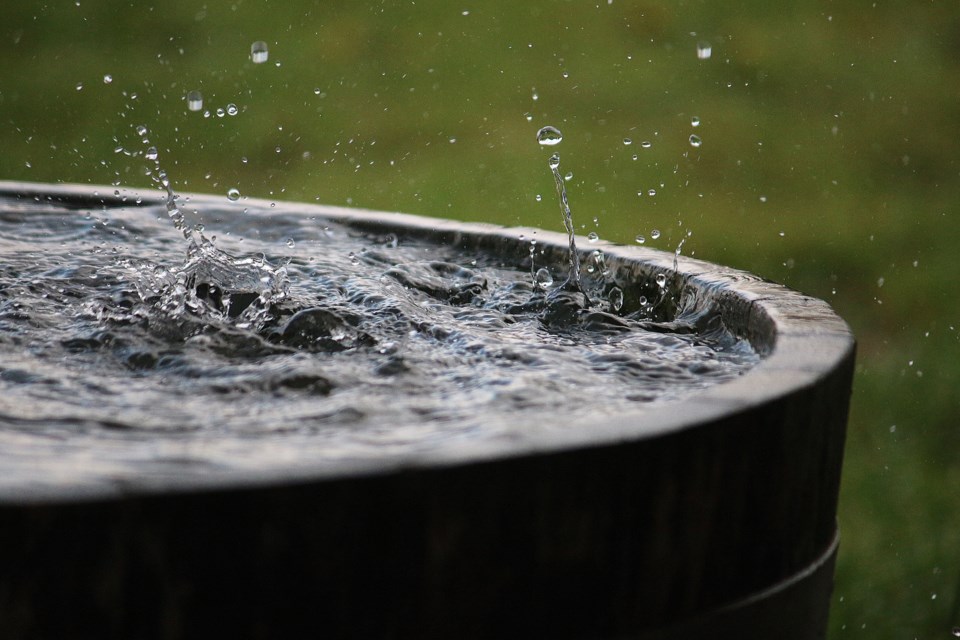Living in the Flour Mill area of Greater Sudbury, Bob Daigle has taken water collection to new heights, literally.
He has built two water towers and collects rainwater for many of his household needs, including for his laundry machine, rooftop garden, greenhouse and veggie beds.
“I save at least $700 and as much as $1,000+ per year on my water bills,” Daigle said.
How ingenious is that?
And if you can’t build a water tower like Bob Daigle, you can still connect one or two rain barrels to your downspout. Rain barrels save you money by lowering your monthly water consumption and reducing the volume of water that must be treated and considered for future municipal infrastructure upgrades.
Rain barrels also help to reduce local flooding and divert significant quantities of rainwater from the sewer system during storms to reduce bypasses at water treatment plants. Installing rain barrels is one way to help protect our waterways, especially during the severe rainfall events which accompany climate change. Watch for local rain barrel sales at RainBarrel.ca to support a local school or garden while purchasing your rain barrels.
Rain barrels help conserve energy by reducing the amount of water and wastewater that needs to be treated and pumped. Although a major component of our city’s emissions is through heating buildings and transportation, water treatment represents the largest energy use for most municipal governments.
Energy is used across four sectors, including wastewater treatment plants, drinking water treatment plants, wastewater pumping stations and drinking water pumping stations.
So, reducing water use reduces electricity use. That is why the City of Greater Sudbury Community Energy and Emissions Plan (CEEP) has a goal to reduce water use by two per cent a year, to achieve net zero greenhouse gas emissions by 2050.
In addition to collecting rainwater, you can reduce the amount of water you use through water efficiencies and conservation. Some of the actions you can take include installing low flush toilets, having shorter showers, fixing leaky taps, washing clothes in cold water, and keeping a jug of water in the fridge.
Another tip from a member of the Coalition for a Liveable Sudbury, Paula Worton, is to “Keep pots in the shower. Once they fill up, use the water for the garden or house plants.” This is just one way you can collect and use greywater, water that would otherwise just go down the drain, but can be put to good use. The City of Guelph provides a $1,000 rebate for the installation of a greywater reuse system.
Water is a precious resource. Water is life. Greater Sudbury is a city of lakes and we place a special value on our water. By being more mindful of the water we use, we not only act on climate change, but also help protect the lakes and rivers where we swim, boat, fish, and source our drinking water.
We can all do our part to help conserve water and energy to fight climate change because every little bit helps, and the science tells us we must do it sooner than later.
Lilly Noble is co-chair of the Coalition for a Liveable Sudbury. Coalition for a Liveable Sudbury is a grassroots group of citizens and community groups who share a vision of Sudbury as a green, healthy and engaged community. For additional information on a net zero future for Greater Sudbury, see LiveableSudbury.org/Net_Zero_Sudbury.
